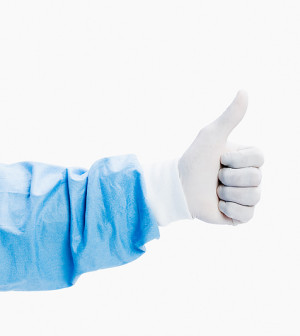- Could Your Grocery Store Meat Be Causing Recurring UTIs?
- Are You Making This Expensive Thermostat Error This Winter?
- Recognizing the Signs of Hypothyroidism
- 10 Strategies to Overcome Insomnia
- Could Artificial Sweeteners Be Aging the Brain Faster?
- Techniques for Soothing Your Nervous System
- Does the Water in Your House Smell Funny? Here’s Why
- Can a Daily Dose of Apple Cider Vinegar Actually Aid Weight Loss?
- 6 Health Beverages That Can Actually Spike Your Blood Sugar
- Treatment Options for Social Anxiety Disorder
Health Highlights: Nov. 19, 2014


Here are some of the latest health and medical news developments, compiled by the editors of HealthDay:
Major Effort to Find Ebola Treatments Announced by Coaltion
Plans to test experimental drugs for Ebola and to collect blood plasma from survivors of the disease in order to treat new patients in West Africa were announced by an alliance of aid groups and private companies.
There are no approved drugs or vaccines for Ebola, which has killed about 5,000 people in West Africa.
Blood plasma from Ebola survivors contains antibodies against the disease. A number of Ebola patients have received plasma from survivors and recovered. However, the effectiveness of plasma from Ebola survivors needs to be confirmed, which is the goal of a study to start within a month, the Associated Press reported.
About $5.7 million will be given by the Bill & Melinda Gates Foundation to scale up production of the treatments for the project in Ebola-affected countries in West Africa, and more than a dozen companies, universities and other organizations are providing supplies, staff and money.
Last week, Doctors Without Borders said three of its West Africa treatment centers would host studies of experimental medicines and plasma, the AP reported.
One of the drugs to be tested by both groups is the antiviral medicine brincidofovir, which was developed by North Carolina-based Chimerix Inc. to treat other types of viruses. Lab tests suggest it may be effective against Ebola and it has been tried in a few Ebola patients.
“We said to them, well, if money was no constraint, how much could you make?’ and they gave us a number,” Bill Gates told the AP. “So we said, `OK, we’ll take the risk that maybe nobody will ever buy this from you. So we’ll help you scale up the manufacturing.'”
In order to collect plasma, donors’ blood will be filtered through a machine to remove small amounts of plasma and the remainder of the blood will be returned to the donor. This means that someone can donate plasma as often as every two weeks.
Plasma donors and recipients must have compatible blood types, and donors need to be screened to confirm they are cured of Ebola and don’t have other diseases such as HIV, hepatitis or syphilis. The project in Africa will also use an experimental system that inactivates viruses in the blood, the AP reported.
One person who plans to donate plasma and to recruit others for the study is Dr. Ada Igonoh of Nigeria, who got Ebola from a patient but recovered.
“Survivors will be willing if they understand the goal,” she told the AP.
—–
Second Face Transplant Performed at Cleveland Clinic
A second face transplant was performed at the Cleveland Clinic in late September. The clinic performed the nation’s first face transplant in December 2008.
The recipient in this case was a middle-aged man who was severely disfigured in a car crash, the Associated Press reported.
The transplant included two-thirds of the scalp, the forehead, eye sockets, upper and lower eyelids, upper cheeks, nose, upper jaw and upper teeth, salivary glands and nerves, muscles and skin, according to doctors.
The recipient wants to remain anonymous. In a statement released Tuesday by the hospital, he said he is “grateful beyond words to the donor and his family for their amazing gift,” the AP reported.
—–
Copyright © 2026 HealthDay. All rights reserved.










